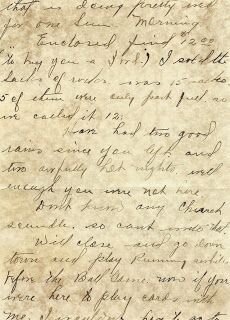Old magazines are an ubiquitous category of clutter. Every household I have encountered is somewhere burdened with too many periodicals.
What I’ve discovered is that the impulse that leads you to amass a collection of periodicals is similar to the impulse generally recognized as the root of all evil, that is, greed, or the love of money. Hear me out. I’m not labeling your periodical collection “evil.” I’m noticing a similarity between two impulses.
How is the impulse to retain periodicals similar to greed? And what can we do about it?
I expect your explanation for your periodical collection is: “There are excellent articles in them. And I want to read these articles again [some day].”
And I would respond: “Yes, I understand that you find value in the articles. But, you’ve read them once, and already internalized the benefit. The pleasure of reading the articles, and the wisdom of the articles, are already part of who you are. You no longer need the periodicals themselves!”
(My further argument is that more periodicals keep coming. It’s what they do! You are so overwhelmed by the old, you can hardly pay attention to the new. And you have no space to accommodate the new. Your mind is burdened by the expectation that you will re-read the old some day; your living space is cluttered by the listing stacks.)
You find it difficult to let go. You may be in the (deeply ingrained) habit of securing access to re-experience. Let me say that another way. You may feel compelled to do whatever is necessary to make sure you can re-live certain experiences, in this case, re-read old articles.
And isn’t that what greed is… the impulse to secure that access? To make sure you can repeat certain experiences again and again? Money is a means of making sure you can do it again, whatever “it” is: eat at that restaurant, visit that city, drive that car, attend that concert, feel that thrill.
When you say you will re-read these magazines some day…. remember that some day means never!
C.S. Lewis said it better. In the second book of his sci-fi trilogy, Perelandra, Lewis’ keenly observant protagonist, Elwin Ransom, travels to the planet Venus, aka Perelandra, and discovers wondrous life forms there. In the following passage, Ransom meditates on his surprising experience of what he dubs “bubble-trees.” The exquisite nectar of the bubbles produces refreshment and enlightenment.
Now that he knew the secret, he could explain to himself why this wood looked and felt so different from every other part of the island. Each bubble, looked at individually, could be seen to emerge from its parent-branch as a mere bead, the size of a pea, and swell and burst; but looking at the wood as a whole, one was conscious only of a continual faint disturbance of light, an elusive interference with the prevailing Perelandrian silence, an unusual coolness in the air, and a fresher quality in the perfume. To a man born in our world, it felt a more out-door place than the open parts of the island, or even the sea. Looking at a fine cluster of the bubbles which hung above his head, he thought how easy it would be to get up and plunge oneself through the whole lot of them and to feel, all at once, that magical refreshment multiplied tenfold. But he was restrained by the same sort of feeling which had restrained him over-night from tasting a second gourd. He had always disliked the people who encored a favourite air in the opera — “That just spoils it” had been his comment. But this now appeared to him as a principle of far wider application and deeper moment. This itch to have things over again, as if life were a film that could be unrolled twice or even made to work backwards… was it possibly the root of all evil? [Emphasis mine.] No: of course the love of money was called that. But money itself — perhaps one valued it chiefly as a defense against chance, a security for being able to have things over again, a means of arresting the unrolling of the film. (Lewis 42-43)
Bubble-trees on Perelandra
I feel C.S. Lewis would agree with me if I were to argue that living in faith means resisting this “itch to have things over again.” Part of the meaning of living in faith is the willingness to accept the experience given you, and then let it go.
The practical application of this piece of wisdom is to accept the periodical you’ve subscribed to, and enjoy it, and then let it go, so that you can accept the next. In doing so, you will be exercising the muscle of faith.










